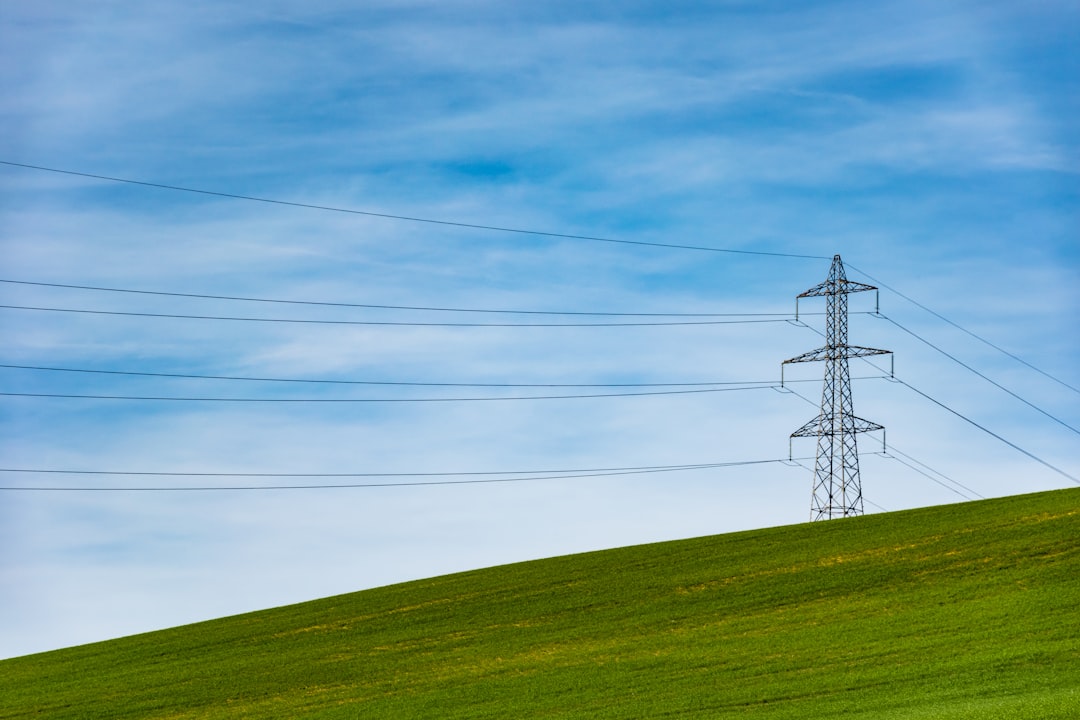Welcome to Grid Brief! Here’s what we’re looking at today: FERC’s Christie presages transmission revisions, the EU imports more Russian LNG, and more.
Christie: FERC Not a Transmission “Sugar Daddy”
The Federal Energy Regulatory Commission plans to revamp its requirements for regional transmission planning and cost allocation at the end of this month. No doubt some are hoping for anything to ease the difficulty of building massive transmission projects. Commissioner Mark Christie spoke at an industry event last week, offering glimpses into how FERC is thinking about the issue in the lead up to its revision.
Christie drove home two major points. First, state buy-in are non-negotiable when it comes to cost allocation. To try and steamroll state governments and regulators will provoke backlash and litigation that will only make the process more difficult.
The second point Christie emphasized is that FERC cannot force anyone to build a power plant or a transmission line.
“So let’s not look to FERC as the big sugar daddy in Washington that is going to get all this stuff done,” Christie said, as quoted in Utility Dive’s coverage of the conference. “Ultimately, assets get built at the state level because states have the authority to order the construction of generating units, which we need a lot more of, especially combined cycle units, and transmission assets.”
As the share of renewable energy projects has grown, transmission has become a big issue. Utility-scale wind and solar projects are generally built far away from the places that can use their power, necessitating regional transmission to make the projects viable. Christie’s comments likely dampened hopes that major reforms might resolve the interstate politics of regional transmission construction.
Russian LNG Exports to Europe Grow

New data reveals that Europe has become the largest importer of Russian LNG in the world.
“Citing a 4.3% (8.7 million metric ton) increase in unsanctioned LNG exports in Q1 2024 based on data from Kpler, Kommersant.ru said exports to the European Union were rising, while those to Asia were declining. Russia’s LNG exports to Asia for the first quarter of the year saw a 7% decline, which was made up for by a 4% increase in exports to Europe, which received some 5 million tons of Russian LNG during that time period,” reports Oilprice.com.
Most of Russia’s LNG production comes from Novatak’s Yamal Project, which is located on Russia’s northern coast, and Gazprom’s Sakhalin Energy Project, sited just north of Japan.
According to Oilprice.com, this rise in Russian LNG exports to the EU signals that the bloc has traded Russian pipeline gas to the East for the super-chilled fuel at western ports.
Upgrade to Grid Brief Premium to get extra deep dives into energy issues all over the world.
Conversation Starters
India’s coal imports rose. “India's coal import rose by 13% to 21.64 million tonnes (MT) in February as some buyers took fresh positions to replenish stocks ahead of summer, according to online marketplace mjunction. The country's coal import was 19.15 MT in the corresponding month of FY23,” reports Energyworld.com. “Of the total import in February, non-coking coal import increased to 13.77 MT compared to 11.68 MT imported in the year-ago period.”
Zurich Insurance bows out of oil and gas. “Zurich Insurance Group AG will no longer underwrite new oil and gas projects, and is cracking down on clients planning to expand in metallurgical coal mining. The restrictions also entail asking the highest-emitting corporate customers to reduce their carbon footprints, the company told Bloomberg. Further details of the policy will be included in the insurer’s climate-transition plan, which will be announced later this year,” reports Bloomberg. “Sierra Signorelli, chief executive of commercial insurance at Zurich, said the decision reflects the disconnect between such activities and the insurer’s overall goal of achieving net zero emissions by 2050.”
Guyanese natural gas plant struggles. “Guyana’s efforts to use its natural gas resources to fuel a power plant that would slash the South American nation's energy costs have snagged on construction delays and threaten to curtail the rising oil hotspot's revenue this year by about $1 billion,” reports Reuters. “The $1.9 billion gas-to-power project, Guyana's biggest effort to capitalize on its energy bounty, is embroiled in legal fights and risks cost overruns. The first phase of a 300-megawatt (MW) power plant is running six months behind schedule and full operation is not expected until the fourth quarter of 2025, officials have said.”
Crom’s Blessing

We rely on word of mouth to grow. If you're enjoying this, don't forget to forward Grid Brief to your friends and ask them to subscribe!
